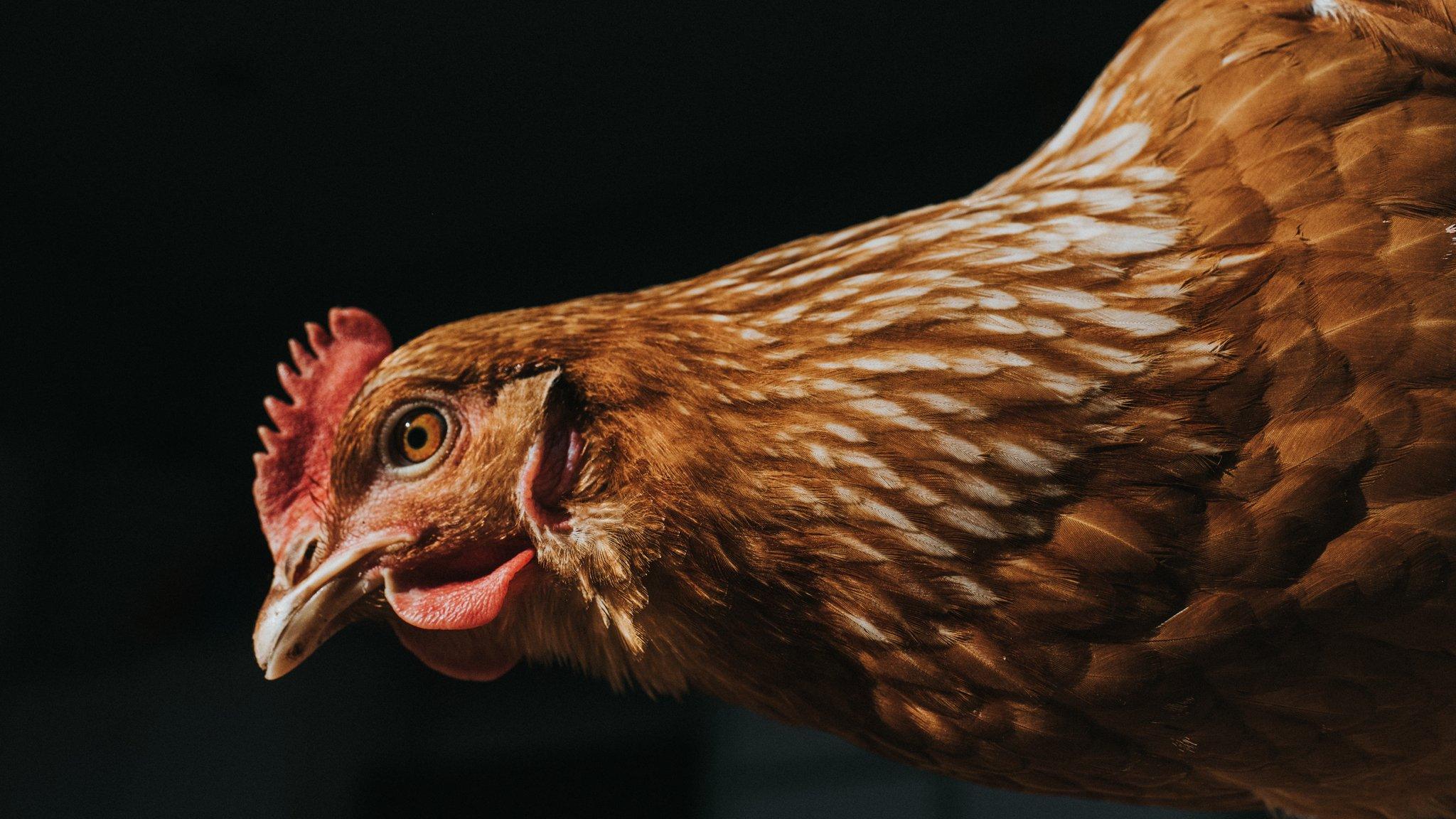Bird flu: Outbreak not going away anytime soon, RSPB Scotland says
- Published
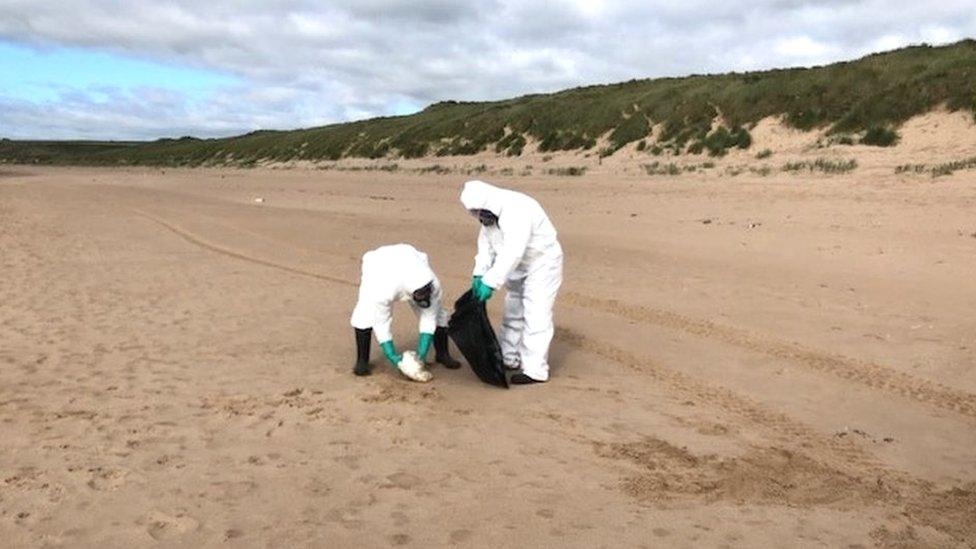
Staff have been removing carcasses on the Aberdeenshire coastline
The bird flu outbreak will not be going away anytime soon, RSPB Scotland has warned.
The charity said the "unprecedented" outbreak - with large numbers of dead and dying seabirds across Scotland - could have a catastrophic impact.
It came as Aberdeenshire Council said reports of deaths had seen a recent "significant" fall.
RSPB Scotland said that was good news locally, but that picture was not being replicated elsewhere.
More than 1,000 birds have been collected and disposed of by Aberdeenshire staff due to the outbreak in recent weeks.
Cruden Bay and Crovie alone have seen about 500 carcasses.
Despite the recent reduction, Aberdeenshire Council said there were still birds being washed up along the coastline, and urged the public to keep reporting sightings.
Gordon Buchanan, Aberdeenshire's protective services manager, said: "I would like to thank all our teams for their rapid and efficient response, and particularly to all those frontline personnel who have done a tremendous job under very challenging circumstances clearing our beaches of these dead seabirds."
The clean-up operation has been from St Cyrus in the south heading north through areas including Stonehaven, Balmedie, Newburgh, Peterhead, Fraserburgh and Macduff.
He explained: "Although we are now seeing a distinct reduction in the number of reported sightings, there are still some birds being washed up along our coastline.
"We will remain vigilant over the weeks and months to come and will respond to further sightings, but for now we have ensured that our beaches remain relatively clear and safe for everyone to enjoy this summer."
However Kirsty Nutt, from RSPB Scotland, she thought the "absolutely unprecedented" wider situation was actually accelerating and getting worse.
"Gannets are on our coast breeding for quite a long time, so the final birds won't leave until October," she told BBC Scotland News.
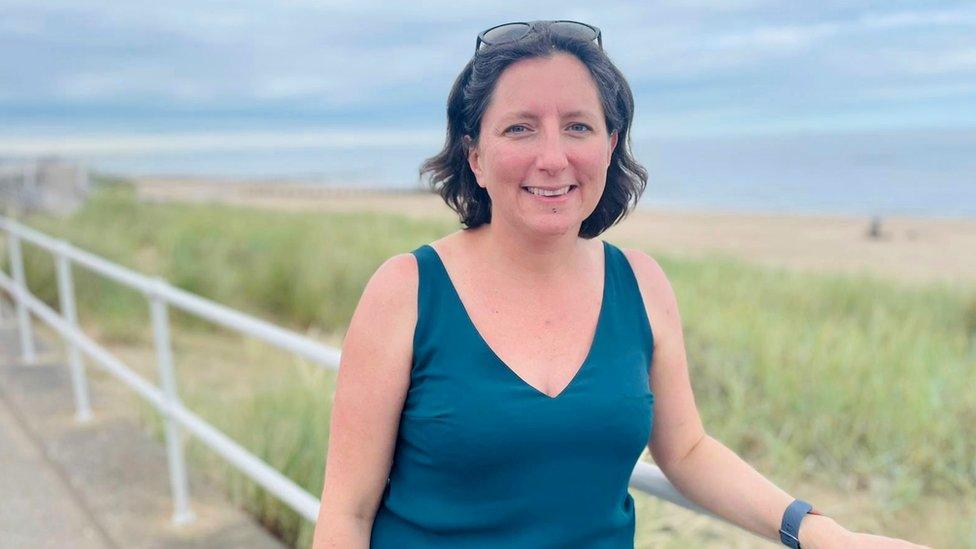
RSPB Scotland's Kirsty Nutt warned the end was not in sight
"I don't think it's going, sadly, anytime soon, and it could have a catastrophic impact on some of our wild birds. We could be a long way from the end of this.
"The only snapshots we've got are where colonies are being counted, and where that's happening it looks really frightening."
She added: "It's good that workers from Aberdeenshire Council are getting a little bit of respite."
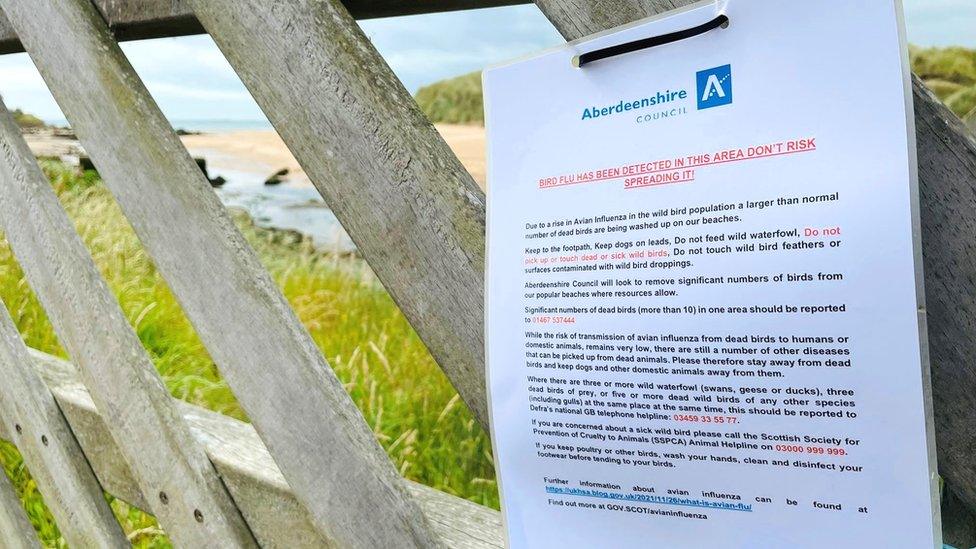
The council has been warning the public to be vigilant
The charity said the outbreak was "heartbreaking", external and was taking a heavy emotional toll on workers who were facing harrowing scenes every day.
Nature body NatureScot is asking the public not to take access through seabird colonies for the rest of the breeding season.
It said it was "extremely concerned" about the current H5N1 strain of avian flu in Scotland and its potential impact on internationally important bird populations.
A Scottish government spokesperson described the latest outbreak of avian flu as the largest seen in the UK to date.
"The Scottish government is taking the situation very seriously and is working hard with partner organisations to progress measures to respond to the reports of increased mortality among wild bird populations," a statement said.
Public health advice is that the risk to human health from the virus is very low.
- Published14 July 2022
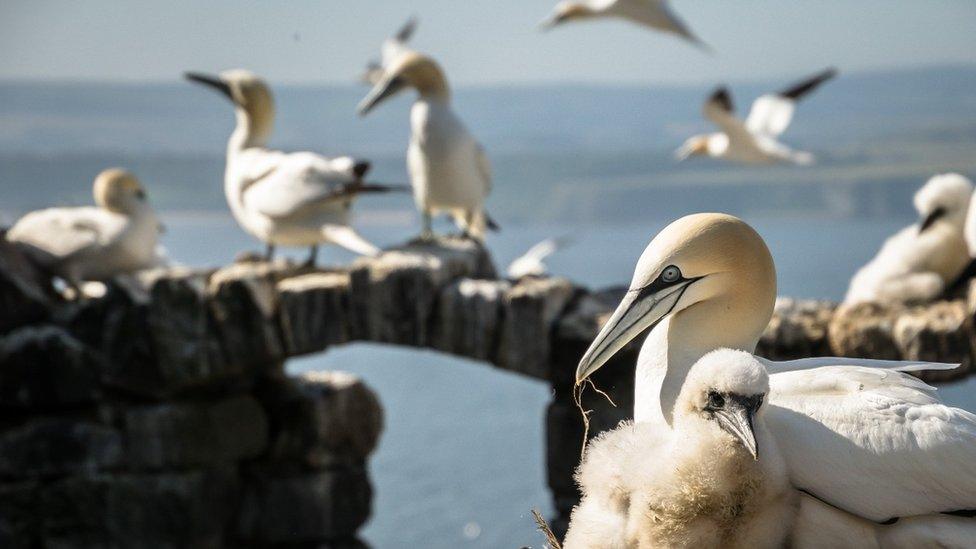
- Published8 June 2022
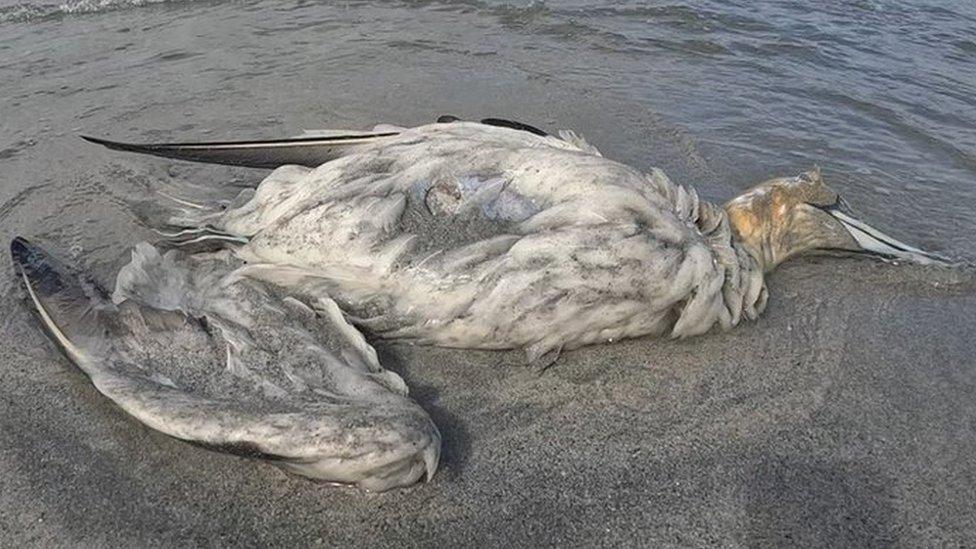
- Published7 June 2022
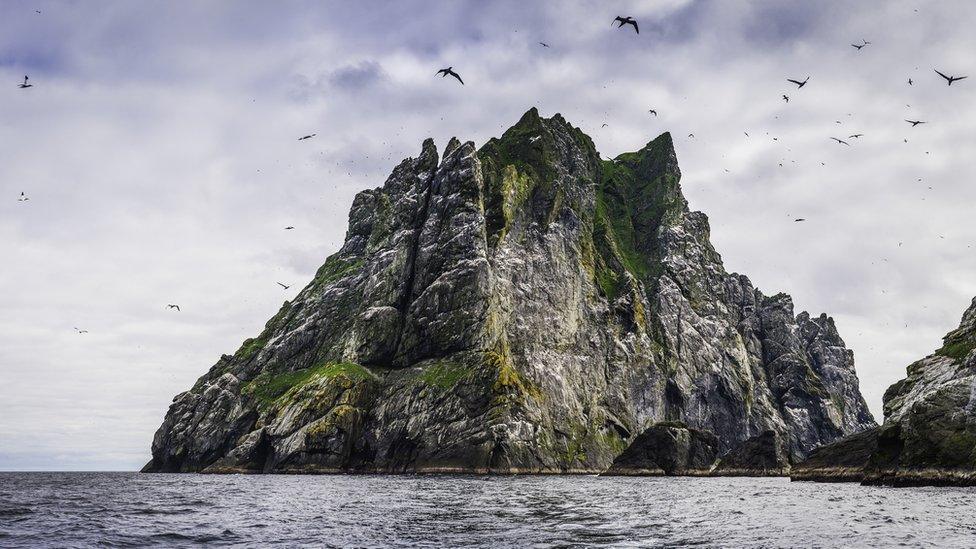
- Published6 June 2022
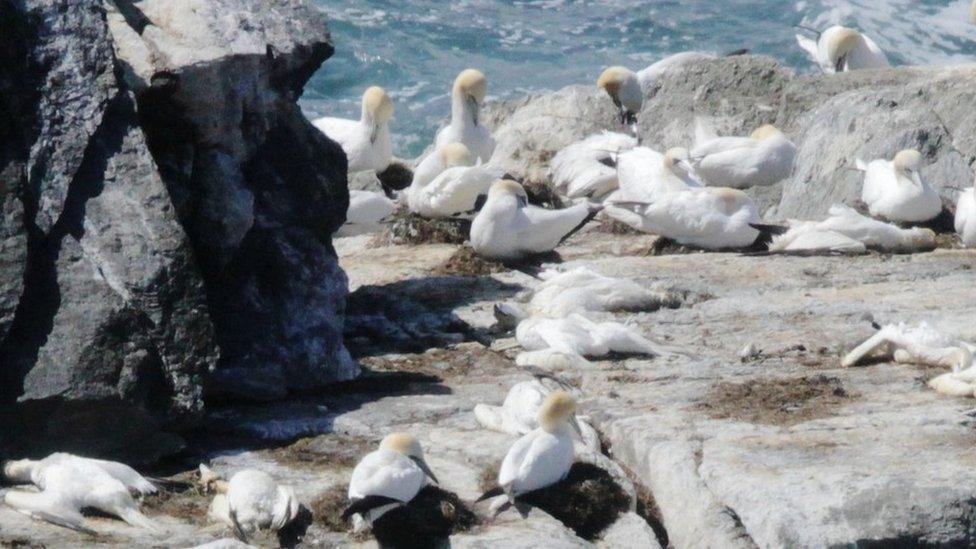
- Published13 May 2022
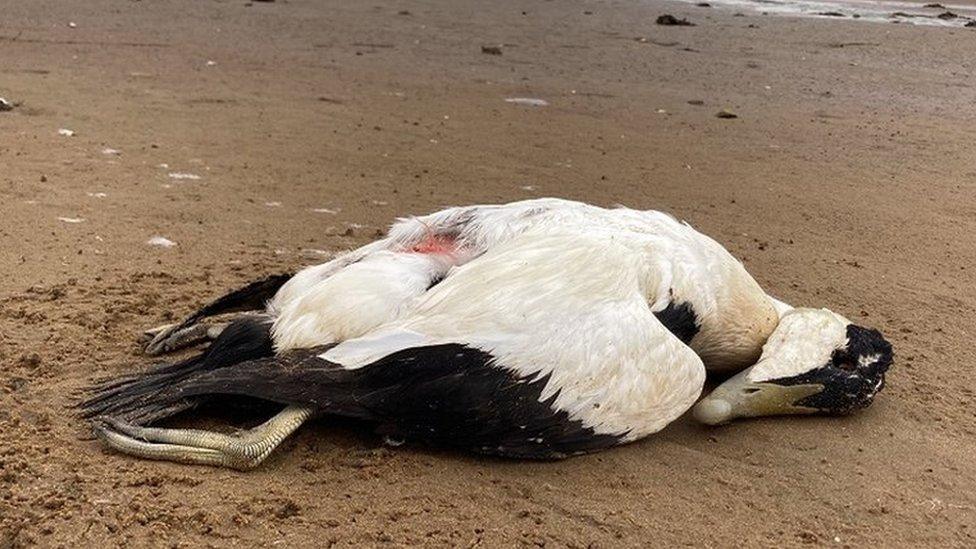
- Published20 January 2022
